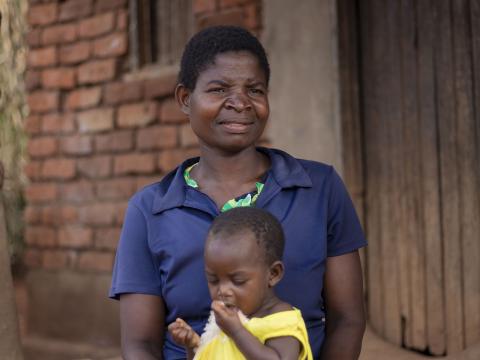
Winning the Fight Against Malaria
Malaria Programming
Though eliminated in some parts of the world decades ago, malaria remains a significant public health problem threatening half the world’s population. In 2023, there were 263 million malaria cases globally, leading to 597,000 deaths (WHO). In 2023, the African Region was home to 94% and 95% of malaria cases and deaths, respectively.
Malaria disproportionately affects the poor and most marginalized communities as they are high risk and have the least access to effective services. Due to more vulnerable immune systems, children under 5 years old, pregnant women, and people living with HIV and AIDS are more susceptible to malaria. In 2023, children under 5 years of age are most at risk of severe complications from malaria; in 2023, they accounted for nearly 76% of all malaria deaths in the WHO African Region. (WHO).

World Vision is following through on its commitment to fight malaria until it is defeated. Prevention and treatment for malaria is woven into our core global health strategy. In areas where malaria is an issue we work to assure that families – especially mothers and children under age 5 – are sleeping under an insecticide-treated mosquito net. We also work to strengthen health systems to make sure families have access to proper diagnosis, treatment and care, including Integrated Community Case Management (iCCM) where diagnosis and treatment is carried out by community health workers. Other interventions include promotion of intermittent presumptive treatment for pregnant women, indoor residual spraying of insecticides (IRS), and environmental hygiene interventions where we address the sanitation issues that create breeding grounds for malaria-carrying mosquitoes.
THE MALARIA VACCINE
In October 2021, the World Health Organization recommended that the RTS,S malaria vaccine be used for the prevention of malaria in children living in regions with moderate to high transmission, based on results of the ongoing research pilot project that has reached more than 1 million children in Ghana, Kenya and Malawi since 2019. World Vision fully supports promotion of the RTS,S vaccine because it has proven to be safe, effective, feasible and practical. Malaria vaccine rollout started in Cameroon in January 2024.
WORLD VISION'S MALARIA INVESTMENTS THROUGH THE GLOBAL FUND
In 2023, World Vision:
- We directly benefited 44 million people through our malaria prevention and treatment programmes.
- Distributed 19,394,606 long-lasting insecticidal nets to prevent malaria.
- Provided indoor residual spraying to 391,643 households through the World Vision Global Fund.
- Tested 6,372,399 suspected malaria cases and treated 5,552,235 confirmed cases with first-line antimalarial treatment.
- Evaluated and treated 176,432 contacts of people with confirmed tuberculosis.
- Reached 595,481 key populations with HIV prevention programs.
- Educated 402,184 adolescent and young people through comprehensive sexuality education programs.

Read more:
What is malaria? Facts, Symptoms and what World Vision is doing
Digital Health Factsheet: Fighting malaria with digital health tools in Angola
Integrated Community Case Management - a World Vision project approach


